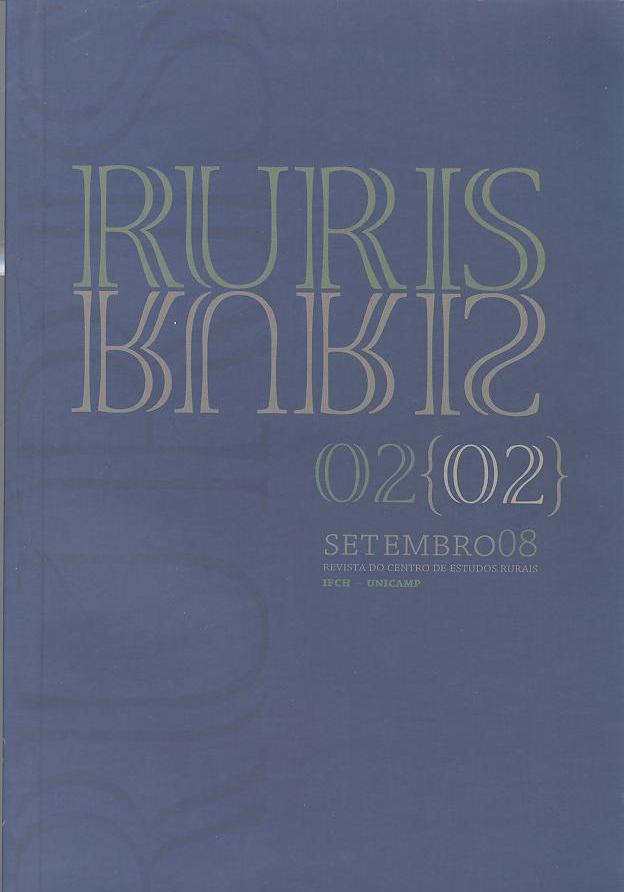Abstract
Albernoa is a Portuguese village situated in the region of Alentejo (South of Portugal). This village has suffered a progressive ageing, and continuous depopulation. These tendencies occurred simultaneously with the reducing of several agricultural occupations and activities. At the same time we identify some dynamic indicators connected with the increasing of spatial mobility and the adoption of urban habits. However these modern social factors are not strong enough to invert the tendency towards a progressive demographic depression. Internally the population of Albernoa shows a deep difficulty in reinforcing community ties which would allow collective projects – potentially leading to the formation of socialcapital. The villagers are highly divided in terms of collective trust.References
ALIER, Juan Martinéz. La estabilidad del latifundismo. França: Ruedo Ibérico, 1968.
ALMEIDA, João Ferreira de. Classes sociais nos campos. Oeiras: Celta Editora, 1999.
BARROS, Afonso de. Do latifundismo à reforma agrária: o caso de uma freguesia do Baixo Alentejo. Oeiras: Instituto Gulbenkian de Ciência, 1986.
BOURDIEU, Pierre. Le capital social: notes provisoires. Actes de la Recherche en Sciences Sociales, n. 31, p. 2-3, 1980.
CARMO, Renato Miguel. De aldeia a subúrbio. Trinta anos de uma comunidade alentejana. Lisboa: Imprensa de Ciências Sociais, 2007.
CECCHI, Claudio. Public goods and public services: the process of building capital in rural areas. ISSN: Sidea, set. 2003. Disponível em: http://w3.uniroma1.it/cecchi/CC_SIDEA_2003.pdf, 2003.
CUTILEIRO, José. Ricos e pobres no Alentejo. Lisboa: Sá da Costa, 1977.
COLEMAN, James S. Foundations of social theory. Cambridge: Belknap Press of Harvard University Press, 1990.
DAVID, M. Beatriz; MALAVASSI, Laura. Social capital and rural development policies: starting point or finishing point?. In: ATRIA, Raul; SILES, Marcelo (Org.). Social capital and poverty reduction in Latin America and Caribbean: towards a new paradigm. Santiago: Eclac – Michigan State University, 2004, p. 421-464.
EVANS, Peter. Government action, social capital and development: reviewing the evidence of synergy. World Development, v. 24, n. 6, p. 1.119-1.132, 1996.
FALK, Ian; KILPATRICK, Sue. “What is social capital?” A study of interaction in a rural community. Sociologia Ruralis, v. 40, n. 1, p. 87-110, 2000.
FIELD, John. Social capital. Londres: Routledge, 2003.
GIDDENS, Anthony. As consequências da modernidade. Oeiras: Celta Editora, 1992.
GIDDENS, Anthony. Modernidade e identidade. Oeiras: Celta Editora, 1994.
GRANOVETTER, Mark S. The strength of weak ties. American Journal of Sociology, v. 78, n. 6, p. 1.361-1.380, 1973.
HALPERN, David. Social capital. Cambridge: Polity Press, 2005.
HARRISS, John. Depoliticizing development. The World Bank and social capital. Londres: Anthem Press, 2001.
HELLER, Patrick. Social capital as a product of class mobilization and state intervention: industrial workers in Kerala, India. World Development, v. 24, n. 6, p. 1.055-1.071, 1996.
LEE, Jo et al. Networking: social capital and identities in European rural development. Sociologia Ruralis, v. 45, n. 4, p. 271-283, 2005.
McAREAVEY, Ruth. Getting close to the action: the micro-politics of rural development. Sociologia Ruralis, v. 46, n. 2, p. 85-101, 2006.
MOLENAERS, Nadia. Associations or informal networks? Social capital and local development practices. In: HOOGHE, Marc;
STOLLE, Dietlind (Ed.). Generating social capital. Civil society and institutions in comparative perspective. Nova York: Palgrave MacMillan, 2003, p. 113-132.
NAN, Lin. Social capital. A theory of social structure and action. Cambridge: Cambridge University Press, 2001.
PITT-RIVERS, Julian. Honra e posição social. In: PERISTIANY, J. G. (Org.). Honra e vergonha: valores das sociedades mediterrânicas. Lisboa: Fundação Calouste Gulbenkian, 1971, p. 11-60.
PORTES, Alejandro. Social capital: its origins and applications in modern sociology. Annual Review Sociology, v. 24, p. 1-24, 1998.
PUTNAM, Robert. Making democracy work. Civic traditions in modern Italy. Princeton: Princeton University Press, 1993.
PUTNAM, Robert. Bowling alone: the collapse and revival of American community. Nova York: Simon & Schuster, 2000.
RIBEIRO, Orlando. Portugal, o Mediterrâneo e o Atlântico, 7a ed. Lisboa: Sá da Costa, 1998.
SEVILLA-GUZMAN, Eduardo. Reflexiones teóricas sobre el concepto sociológico de latifundio. In: BARROS, Afonso de (Coord.). A agricultura latifundiaria na Península Ibérica. Oeiras: Instituto Gulbenkian de Ciência, 1980, p. 29-46.
SHULLER, Tom et al. Social capital: a review and critique. In: BARON, Stephen; FIELD, John; SCHULLER, Tom (Ed.). Social
capital. Critical perspectives. Oxford: Oxford University Press, 2000, p. 1-38.
SILVA, Manuel Carlos. Honra-vergonha: código cultural mediterrânico ou forma de controlo de mulheres?. In: PORTELA,
José; CALDAS, João Castro (Org.). Portugal chão. Oeiras: Celta Editora, 2003, p. 67-86.
SVENDSEN, G. L. H.; SVENDSEN, G. T. The creation ans destruction of social capital. Entrepreneuship, co-operative movements and institutions. Cheltenham: Edward Elgar, 2004.
VAN DETH, Jan W. Measuring social capital: orthodoxies and continuing controversies. International Journal of Social Research
Methodology, v. 6, n. 1, p. 79-92, 2003.
WOOLOCK, Michael. Social capital and economic development: toward a theoretical synthesis and policy framework. Theory and Society, v. 27, n. 2, p. 151-208, 1998.

This work is licensed under a Creative Commons Attribution-NonCommercial-NoDerivatives 4.0 International License.
Copyright (c) 2012 RURIS (Campinas, Online)

